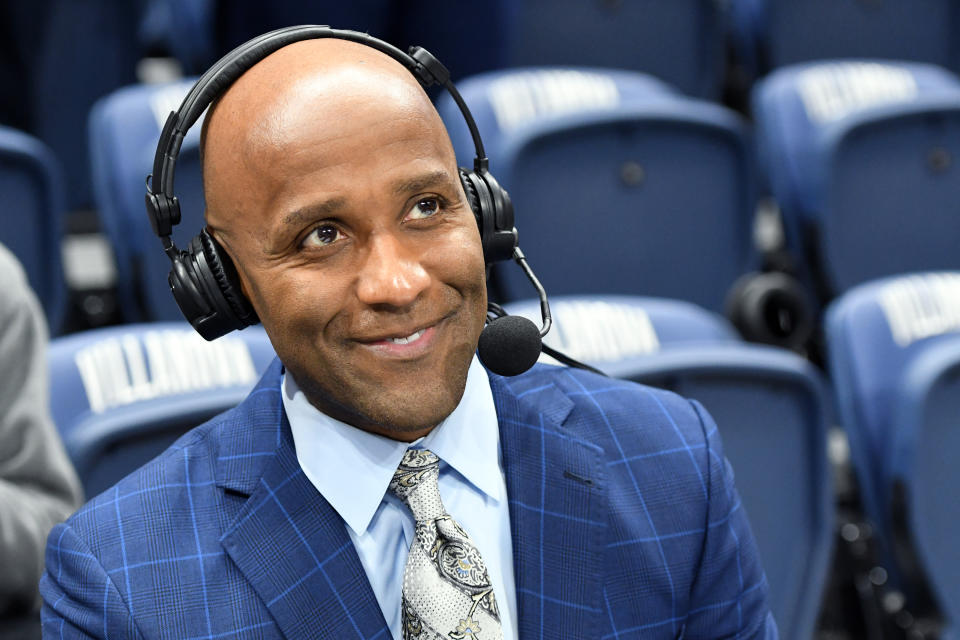Famed sportscaster speaks out about being diagnosed with prostate cancer — which is more likely to kill Black men
Sportscaster Brian Custer was at the pinnacle of his career covering college football and basketball for Fox Sports when a free prostate cancer screening at work changed everything. “The doctor said, ‘Listen, there’s no easy way to tell you this, Brian, but you’ve got cancer and it’s aggressive,’” he recounts in a video with Yahoo Life. Just 40 years old at the time, Custer was told if he didn’t get surgery immediately, he may be dead within two years.
Despite his young age and optimal health, Custer — now a sportscaster for SportsNet NY and host of The Last Stand podcast — was at much higher risk than the general population of developing prostate cancer. But, like many others, he was unaware. “I had no idea the rate that prostate cancer was affecting Black men — I had none,” says Custer.
According to Dr. Brandon Mahal, assistant professor of radiation oncology at the University of Miami Sylvester Cancer Center and a spokesperson for the Prostate Cancer Foundation, Black men are nearly two times as likely to develop prostate cancer and more than two times more likely to die. Experts are still researching the racial disparity, but a 2019 study of 300,000 Black men from JAMA Oncology found that social determinants — such as socioeconomic status — and access to health care likely drive the disparity.

“The data show that Black men don’t appear to intrinsically and biologically harbor more aggressive disease,” said Dr. Daniel Spratt, an oncologist at the University of Michigan and one of the study’s authors. “They generally get fewer PSA screenings, are more likely to be diagnosed with later-stage cancer, are less likely to have health insurance, have less access to high-quality care and other disparities that can be linked to a lower overall socioeconomic status.”
“Definitely access to care and quality of care is a big major driver of prostate cancer disparities,” adds Mahal. “Another major issue is lack of representation on clinical trials, and really when we don’t have representation, it’s hard to understand what all of the factors might be that’s driving this.”
Custer, who after surgery and radiation is now fully in remission, has used his experience to spread awareness in the Black community, becoming a spokesperson for the Prostate Cancer Foundation as well. “Every time I go to the doctor now I always post it on social media. I use the same thing, ‘Men get checked because it could save your life — it saved mine,’” says Custer. “Even if we save one person, that’s enough for me.”
For those who want to mitigate risks, Mahal encourages regular screenings and exercise. “The major, major take home is live a healthy lifestyle, follow up with your doctor — and if you’re high risk, it’s that much more important to do those things.”
Video produced by Jacquie Cosgrove
Read more from Yahoo Life:
Follow us on Instagram, Facebook, Twitter, and Pinterest for nonstop inspiration delivered fresh to your feed, every day
Want pop culture news delivered to your inbox? Sign up here for Yahoo Entertainment & Lifestyle's newsletter.
